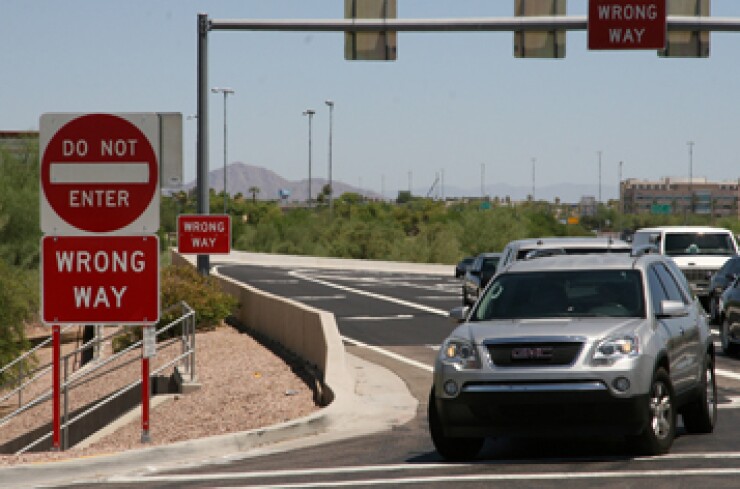
DALLAS - The House must find another funding source to support a multiyear transportation bill after congressional negotiators failed to agree on obtaining additional revenues through a revised international tax code.
Talks between Sen. Charles Schumer, D-N.Y., a member of the Senate Finance Committee, and Rep. Paul Ryan, R-Wis., chairman of the House Ways and Means Committee, on a proposal to raise at least $100 billion of new revenue over six years through a tax on overseas corporate earnings broke down late last week over the push by Democrats to increase federal transportation funding over current levels.
Rep. Bill Shuster, R-Pa., chairman of House Transportation and Infrastructure Committee, said his panel now will focus on other aspects of a long-term transportation bill while Ryan's committee continues to hunt for ways to bolster the almost-depleted Highway Trust Fund.
The tax reform talks will continue as the House transportation bill is being developed, a Ryan spokesman said.
"Chairman Shuster and the transportation committee will now plan to move forward with the policy and authorization portions of the bill as chairman Ryan continues to work through the revenue portions of the bill," the T&I Committee said in a release. "More details on legislation and schedule will be provided as they develop."
The current 90-day extension of federal transportation funding authority will expire Oct. 29. Shuster said in September that another extension would likely be needed to reach agreement on a revenue plan.
Schumer did not specify the transportation funding level sought by the Democrats in the talks, but said it must be "a nice, robust number."
Shuster said last week that Senate and House Democrats were asking for significantly more transportation funding than the current level of $54 billion per year or the $80 billion per year proposed in President Obama's $478 billion, six-year Grow America Act.
"Schumer wants a big number that we just possibly can't get to," said Rep. Kenny Marchant, R-Texas, a member of the Ways and Means Committee.
The supplemental revenue is needed to cover six years of the $15 billion per year revenue gap between expenditures from the HTF and collections of the gasoline tax and other dedicated levies. Ryan and Senate Republicans have ruled out an increase in the federal fuel taxes of 18.4 cents per gallon on gasoline and 24.4 cents on diesel to resolve the shortfall.
Highway and transit funding from the HTF totaled $53.7 billion in fiscal 2015 with revenues of $39.7 billion.
Congress has transferred more than $70 billion of general revenues into the HTF over the past seven years to support highway and transit funding.
The DRIVE Act (H.R. 22), which the Senate passed in late July, would provide $274 billion for highways and $75 billion for transit over six years. The measure is fully funded only for the first three years with $47 billion of revenue offsets in addition to $40 billion per year of federal gasoline and diesel taxes.
The $8.1 billion of general revenue transferred into the HTF by the 90-day extension (P.L. 114-41) was expected to keep the HTF functional through 2015. However, the latest update from the Transportation Department shows the cash balance in the highway portion dipping to $4 billion on Nov. 20, which would trigger a slowdown in reimbursements to states for construction projects, with total insolvency in May 2016.
A joint message to Congress last week from the American Association of State Highway and Transportation Officials and the American Road and Transportation Builders Association urged House members to "consider and pass a well-funded, six-year surface transportation reauthorization bill as soon as possible."





